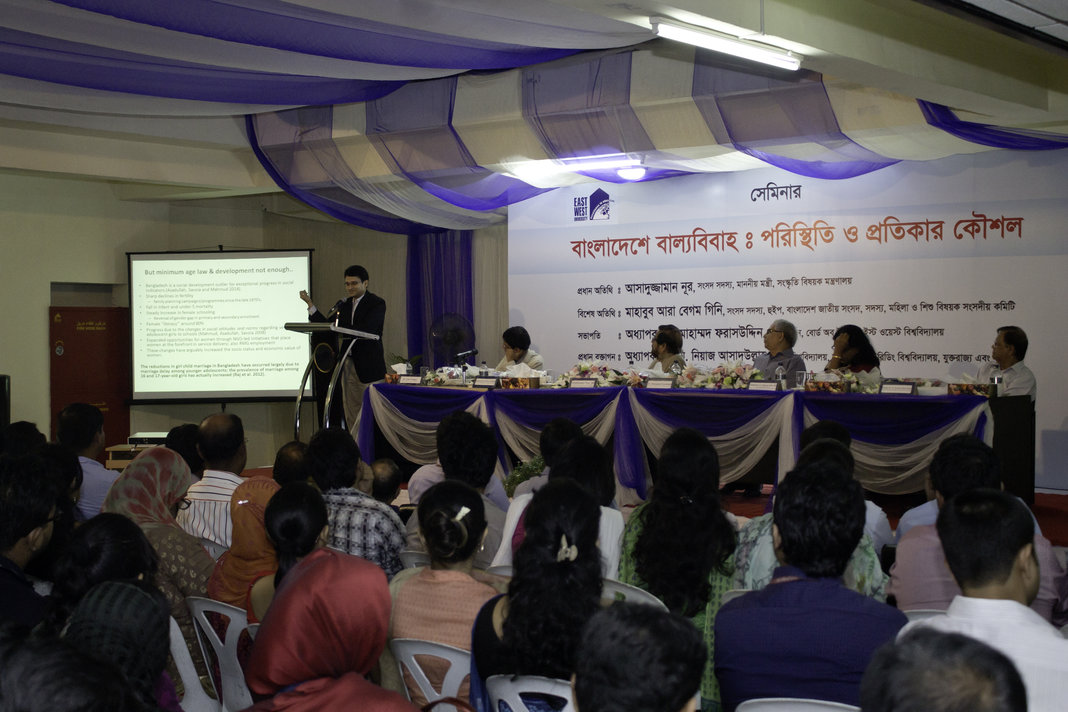On September 3rd, Integgra researchers Niaz Asadullah and Zaki Wahhaj presented findings from the 2014 Women's Life Choices and Attitudes Survey (WiLCAS) and Brac Adolescent Development Programme Baseline Survey at a seminar on child marriage at East West University in Dhaka. Invited guests at the event included the Bangladesh Minister for Cultural Affairs Mr. Asaduzzaman Noor and MP and Member of the Parliamentary Standing Committee on Women and Children's Affairs Mahbub Ara Begum Gini.

A bill that would permit girls to marry below the age of 18 with parental consent is currently under consideration in the Bangladesh parliament. Among other factors, the bill is motivated by a perceived rise in adolescent girls in relationships and the reasoning that marriage provides social protection or acceptability in a society that, otherwise, remains strongly conservative on such matters. If approved, the bill would increase parental agency in the marriage of their dauthers.
Using data from the two recent surveys, the researchers highlighted the fact that most marriages in Bangladesh continue to be arranged by parents and adolescent girls have very limited agency in their own marriage decisions. Only a small fraction of women initiate their own marriages but this fraction is increasing over time. The evidence shows that these marriages have better social outcomes, including a smaller likelihood of child marriage, dowry transfer and early childbirth and increased likelihood of secondary school attendance by the bride.

The researchers argued that, to achieve its wider social objectives, the government should focus on increasing the agency of adolescents themselves in their own marital decisions rather than the agency of their parents -- which has traditionally been, and continues to be, very high.
Press Coverage:


